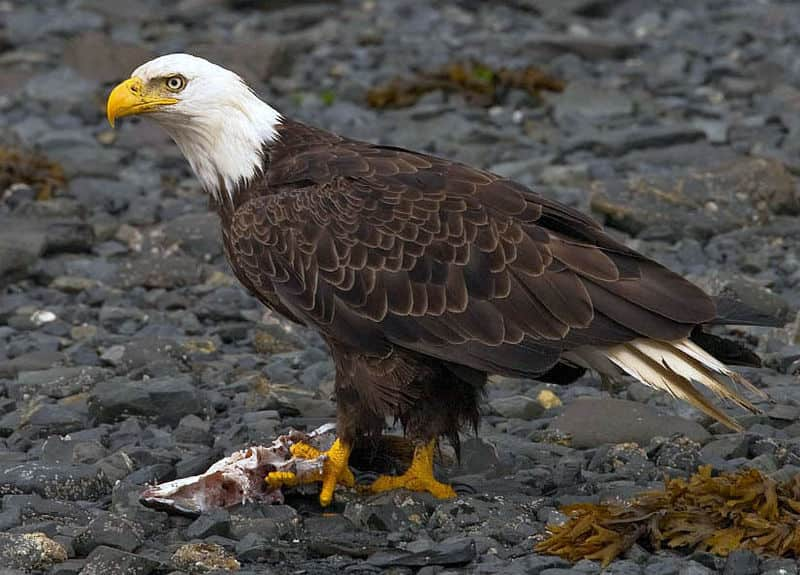New Mexico Eagle Poaching Increasing
OutdoorHub Reporters 05.06.13

Is America’s national symbol threatened by poachers?
The Albuqerque Journal reports that eagle poaching is on the rise in New Mexico, spurred by a need for eagle parts to be used in Native American ceremonies. Due to long waiting periods to obtain eagle parts legally, some are turning to black market poachers to procure them.
Eagles are traditionally viewed by many American cultures as a warrior symbol that brings strength and courage. Eagle feathers are especially significant but all parts of the animal are utilized. Eagle bones are reverently made into whistles and feathers are incorporated into headdresses and clothing. Wearing an eagle feather is a great, but traditionally exclusive privilege.
Eagle parts are available in the National Eagle Repository, where the U.S. Fish and Wildlife Service (USFWS) store eagles that were found to have died naturally. Qualified groups can apply for parts to be shipped to them for use in religious ceremonies. The process of obtaining eagle parts can take anywhere from one to three years, and only those approved by the USFWS can participate in the program. It is illegal for any other individual to possess eagle parts.
Eager to cash in on this waiting period are opportunistic poachers. The crime is lucrative but threatens an already endangered species, with methods including shooting bald and golden eagles out of the sky or capturing them to harvest feathers. As a result of their scarcity, eagle parts can command high prices. These acts are violations of the Endangered Species Act and can carry strict punishments. Trading for eagle parts is also illegal.
“We have major issues, particularly in the Farmington and Shiprock area,” said Navajo Nation Department of Fish and Wildlife Director Gloria Tom.
Even birds who are caught and released cannot survive in the wild with the loss of more than a few feathers, which Tom calls a “death sentence.”
Five incidents are reported annually in the area, with more suspected to go unreported. Tom expects the number to rise in the coming months.
“If you don’t treat (the American eagle) with respect, it won’t take care of you,” Tom said.

